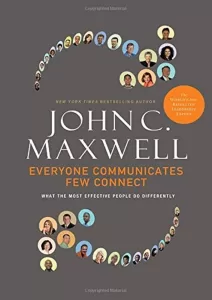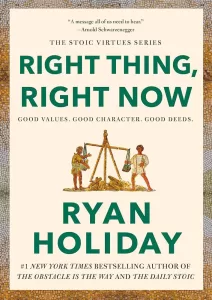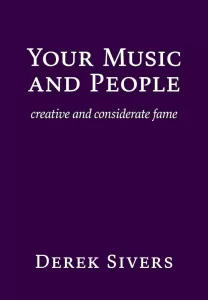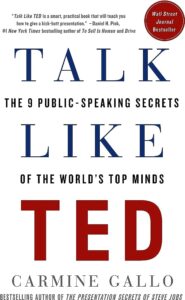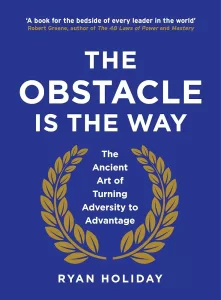Book Review: “Everyone Communicates, Few Connect”
Book: Everyone Communicates, Few Connect by John Maxwell
Reviewer: Bobby Powers
My Thoughts: 8 of 10
I put off reading this book for years because I naively thought, "I've read a million communication books. This one won't be any different." I was wrong. I love Maxwell's ability to weave stories, quotes, and interesting ideas into a patchwork quilt of instruction. I left with a greater sense of direction for how to forge a deep connection with friends, colleagues, and even large audiences.
What I Learned from the Book
HOW we say things is more important than WHAT we say. People can tell whether you care about them, and if they know you care, they'll pay much more attention to whatever you say.
The best communicators aren't necessarily the smoothest talkers—they're the people who make us want to be around them. The friends who intently listen to us. The leaders who ask how we're doing. The public speakers who tap into their deep knowledge of humanity to tell stories that resonate with us. That's what great communication looks like.
"During my second year of nursing school our professor gave us a quiz. I breezed through the questions until I read the last one: 'What is the first name of the woman who cleans the school?' Surely this was a joke. I had seen the cleaning woman several times, but how would I know her name? I handed in my paper, leaving the last question blank.
Before the class ended, one student asked if the last question would count toward our grade. 'Absolutely,' the professor said. 'In your careers, you will meet many people. All are significant. They deserve your attention and care, even if all you do is smile and say hello.' I've never forgotten that lesson. I also learned her name was Dorothy." -JoAnn C. Jones
Selected Quotes & Ideas from the Book
Communication vs. Connection
- "Everyone talks. Everyone communicates. But few connect. Those who do connect take their relationships, their work, and their lives to another level."
- "The exact words that you use are far less important than the energy, intensity, and conviction with which you use them." -Jules Rose
- "According to experts, we are bombarded with thirty-five thousand messages a day. Everywhere we go, everywhere we look, someone is trying to get our attention...At the same time, we also have messages we want to get across to others. I've read that, on average, most people speak about sixteen thousand words a day. If you transcribed those words, they'd fill a three-hundred-page book every week."
- "I am convinced more than ever that good communication and leadership are all about connecting... Connecting is the ability to identify with people and relate to them in a way that increases your influence with them."
- "According to the Harvard Business Review, 'The number one criteria for advancement and promotion for professionals is an ability to communicate effectively.' That means connecting! If you learned to connect better, it would change your life!"
- "Connecting with others is like anything else in life: you have to be intentional about it."
- Examples of connecting:
- Focusing on others
- Finding common ground
- Capturing people's interest
- Inspiring others
- Being authentic
Tips for Connecting 1-on-1
- "Talk more about the other person and less about yourself. Prepare two or three questions you can ask someone before a meeting or social gathering."
- "Know what they value by being a good listener when you are with them."
- "Anytime you remove obstacles and reduce distance, connection becomes easier. And physical touch eliminates distance altogether. A handshake, a pat on the back, or a hug can do a lot to promote connection."
- "Once a person has been placed neatly within a certain box, it becomes more difficult for us to think of him or her as being anything different. Instead, we need to be like a good tailor. Every time he sees a client, he takes new measurements. He never assumes people are the same as the last time he saw them."
- "Talk at me and you'll talk alone. Talk to me and I'll listen. Talk about me and I'll listen for hours." -Old saying
- "Whenever you can help other people to understand that you genuinely care about them, you open the door to connection, communication, and interaction. You begin to create a relationship."
- "My advice to anyone who wants to connect with others is to get comfortable with silence and learn to let it become an exclamation point for things you say."
Tips for Connecting with Groups
- "Find ways to help the group celebrate successes together."
- "Place value on each person by pointing out his or her value to the others in the group."
- "Invite input and allow people to lead in their area of strength."
- "Communicating in a group is a little more complicated than communicating one-on-one. You have to make your ideas work for more than one person, so simplify them. You should never simply 'dump' a bunch of information on people and expect them to sort it out. That's lazy and ineffective."
- "Pay attention to what charges your batteries and start making it part of your schedule. If you are responsible for leading people or communicating with others, it is especially vital for you to find ways to recharge. It's really very simple. All you have to do is know the things you like to do and make time for them."
- "You think your people don't already know your weaknesses. They do. By admitting them, you're letting them know that you know them."
Tips for Connecting with an Audience
- "Let your listeners know that you are excited to be with them."
- "No audience arrives at an event expecting to provide energy to the speaker. People come to shows, conferences, workshops, and events expecting to receive, not give. If you are the speaker, you must always keep that in mind. The larger the crowd is, the more energy you must provide."
- "When you are communicating to an audience, facial expressions become even more important. And in general, the bigger the audience, the more exaggerated the facial expressions need to be."
- "Connect intellectually by pausing strategically to give the audience time to think about something you've said."
- "I've learned that if you want people to be impressed, you can talk about your successes; but if you want people to identify with you, it's better to talk about your failures."
- The "Four Unpardonable Sins of a Communicator": Being unprepared, uncommitted, uninteresting, or uncomfortable (Idea from Maxwell's college speech professor)
- "Once I realized that my 'brilliant' talks weren't helping anybody, I started working to change my style...I went from being a speaker who wanted to impress others to one who wanted to impact them. The main change came in going from complicated to simple. As my sentences got smaller, my congregation got larger."
- "There's a real art to making communication simple but memorable...Two good ways to approach a message are to ask yourself: 'What are the bare essentials that I need to communicate for people to understand it?' and 'How can I make those few essential points memorable?'"
- "In general, there are no bad audiences; only bad speakers. If the audience is asleep, somebody needs to go onstage and wake up the speaker!"
- "Studies have shown that there's a direct correlation between predictability and impact. The more predictable listeners think you are, the lower the impact you make on them. Conversely, if you lower your predictability, you increase your impact."
Assorted Wisdom
- "If I went back to college again, I'd concentrate on two areas: learning to write and to speak before an audience. Nothing in life is more important than the ability to communicate effectively." -President Gerald Ford
- "If you will first help people get what they want, they will help you get what you want." -Zig Ziglar
- "Some singers want the audience to love them. I love the audience." -Luciano Pavarotti
- "Nobody wants to be sold, but everyone wants to be helped." -Old sales saying
- "I have yet to observe a great communicator who didn't possess confidence." -Charlie Wetzel
- "If you don't live it, it won't come out of your horn." -Charlie Parker, renowned saxophonist & composer
- "The wise does at once what the fool does at last." -Jewish proverb
- "The first time you say something, it's heard. The second time, it's recognized, and the third time, it's learned." -William H. Rastetter
- "A gossip is one who talks to you about others; a bore is one who talks to you about himself; and a brilliant conversationalist is one who talks to you about yourself." -Lisa Kirk
- "Management is about persuading people to do things they do not want to do, while leadership is about inspiring people to do things they never thought they could." -Steve Jobs
- "The most influential person who will talk to you all day, is you. So, you should be very careful what you say to you." -Zig Ziglar
- "If you have to eat crow, eat it while it's young and tender." -Thomas Jefferson
- "A teacher affects eternity; he can never tell where his influence stops." -Henry Adams
Think you’d like this book?
Other books you may enjoy:
Other notable books by the author:
Want to become a stronger leader?
Sign up to get my exclusive
10-page guide for leaders and learners.
